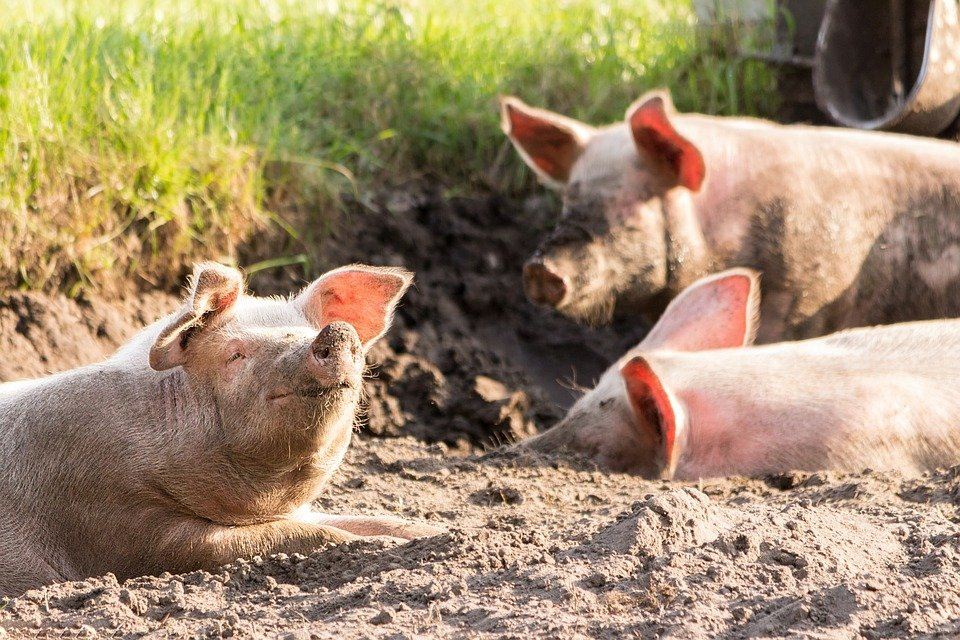Massive Pig Culling Takes Place Due To Butcher Shortages
A huge number of pigs were culled because of a shortage of workers.
This article is more than 2 years old

While we here in the United States continue to deal with our own worker shortages, our friends across the pond are having their own workforce issues. One of the biggest they are dealing with right now is the continuing shortage of abattoir workers, causing the slaughter of healthy pigs.
For several weeks, British pig farmers have been warning all who would listen that their labor shortage has led to a 120,000 pigs backlog that has left them on farms long after they should have gone to slaughter.
Now, farmers are having to make space for incoming pigs and also ensure the welfare of their livestock, by killing the healthy pigs. According to Zoe Davies, the chief executive of the National Pigs Association (NPA), about 600 healthy pigs have been killed at farms across the UK. She admitted that culling has already begun at a number of farms.
The UK’s meat industry is just one of the many industries that are suffering from the labor shortage that has been linked to both Brexit and the COVID pandemic. Its lack of delivery drivers and workers has destroyed its supply chain, something we here in the United States are all too familiar with.
The slaughtering of these healthy pigs has not sat well with the many farmers involved. True, these animals are raised for food purposes, but to see them slaughtered for no reason other than to make space has been a tough pill to swallow.
“I have had grown men in tears on the phone just at the thought to having to contemplate killing healthy animals. We have to avoid welfare culling on farm,” Davies said via The Guardian.
“These are animals that they have reared, fed, looked after, cared for,” she added. “To actually then kill something that’s perfectly healthy to then go in the bin – it’s just criminal.”

Because these slaughtered pigs are no longer fit for consumption, experts within the food industry have said that the animal carcasses would more than likely be turned into biodiesel. They can also be turned into other non-food products.
Most of the pigs slaughtered on farms will be taken to rendering plants across the UK. These plants will then separate pig fat from the meat and bones so it can then be used for animal feed or pet food. But since the pigs will see their end come on farms instead of the slaughterhouse, they will not be approved for human consumption, thus not joining the food chain.
Davies says they have now moved onto stage two. Stage one was NPA’s planning stage and finding temporary accommodations for the pigs. Stage two represents the slaughter stage as the pigs are growing and space is limited to house them.
The solutions are few. “You either stop mating sows, which some farmers are doing or you thin out pigs so the welfare of those on farm isn’t negatively impacted,” Davies noted. “We shouldn’t have to be here, and we shouldn’t be doing this at all.”
The overload of pigs on a farm not only harms the pigs but also makes for added financial difficulties for farmers. These pigs require extra housing and feeding, a cost not many farmers can handle. The pigs ready for slaughter normally grow by about 1kg a day, making them much too large for the normal slaughterhouse to handle.
It is known that some farmers are culling piglets to slow growth. Others have brought slaughtermen to their farms to help kill the larger pigs that they can’t move to slaughterhouses.
The UK makes farmers responsible safe and legal disposal of the pigs. To prevent a contamination risk to soil, groundwater, or air, it is against the law for farmers to bury or burn the dead pigs.
The COVID pandemic continues to destroy industries across the globe and the UK’s food industry is just one example. Farmers say low wages are not a reason for the UK meat processing plants vacancies. They have raised starting wages but are still unable to attract workers. It’s a common theme seen everywhere.





